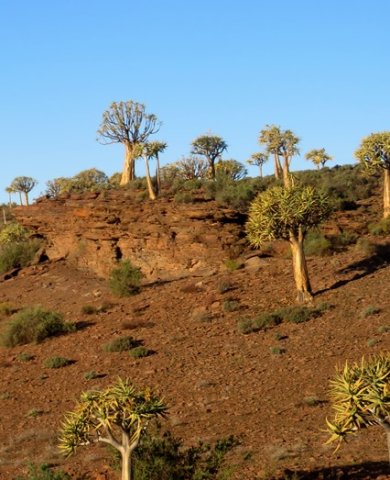Harsh conditions now or always?

Author: Ivan Lätti
Photographer: Thabo Maphisa
If this is near your home, to you it is normal, if it always looks like this. This is August after rain. If every year after rain it appears thus in August, normal it is, if you have looked closely enough. Maybe your parents remember it differently, the "normal" of their childhood replaced by drier or lusher.
Our standards of comparison are coloured by idealised memories, by forgetfulness and by individual differences in temperament which colour our perception and information processing. Measuring rainfall and temperature objectively over time wil raise the debate. Adding parameters like plant size, distances between them, insect and other animal species prevalence would add balance and accuracy to the database used for conclusions.
Societal mood swings and popular narrative of our time about rising temperature, climate change, who’s guilty and what must be done, may increase the social temperature but affect the reality of change, if any, by very little. The human capacity for objective measurement has improved much since the spread of the scientific approach in human society or in parts of it.
Actual measurement and continual monitoring are, however, complex matters to do right. These things are expensive and onerous, requiring concerted decisions, sustained effort and rigour. We argue over environmental conditions and changes because of individually different experiences, our capacity for recall, idealisation of good old days, age, culture, education, vested interests, the inconsistencies in measurement protocols and the incompleteness of data at hand.
Prophets of doom proclaim that the desert is coming, we’ll all fry soon, or whatever. Science is conclusive in some people’s books, not in others, parts of science are inconclusive and further research is always needed.
Is the frog being cooked without jumping in time as the water hots up or will the fashionable debate be replaced by new topics and forgotten as a whimsy of an era?
Measurements of specific phenomena, not the “earth wellbeing” overall, do show worrying signs not heard about at the end of World War II: icecaps melting with sea levels rising, climatic volatility, hottest years in a row and rainfall pattern changes in many places. We all hear of much more in this vein. There are also signs like biodiversity losses including species extinctions, plastic in the sea, sewerage in the rivers and other human activity outcomes that should concern us.
Planet earth is a ship in space now needing more than its regulation coat of paint. Will enough of its passengers take note?

